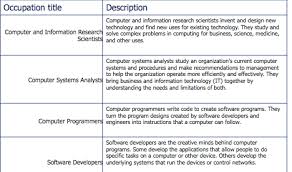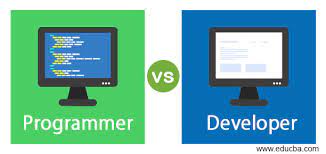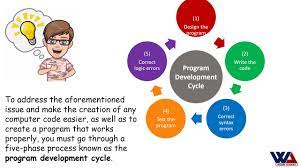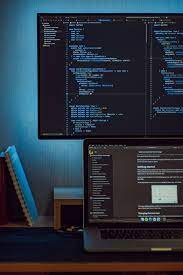Unveiling the Role of a PLC Software Engineer in Industrial Automation
PLC Software Engineer: The Backbone of Industrial Automation
In the realm of industrial automation, PLC (Programmable Logic Controller) software engineers play a crucial role in designing, developing, and maintaining the software systems that control machinery and processes in various industries.
PLCs are specialized computers used to automate processes such as manufacturing, assembly lines, and robotic systems. PLC software engineers are responsible for writing code that dictates how these systems operate, ensuring efficiency, accuracy, and safety in industrial environments.
These engineers possess a unique skill set that combines knowledge of programming languages, such as ladder logic and structured text, with an understanding of electrical systems and industrial processes. They work closely with electrical engineers and automation specialists to integrate software solutions into hardware components seamlessly.
PLC software engineers are adept at troubleshooting complex issues, optimizing system performance, and implementing new functionalities to meet evolving industry demands. Their expertise is essential in ensuring that manufacturing processes run smoothly, minimizing downtime and maximizing productivity.
As technology continues to advance, PLC software engineers must stay current with the latest trends in automation and programming techniques. Continuous learning and professional development are key to thriving in this dynamic field.
In conclusion, PLC software engineers are the unsung heroes behind the scenes of industrial automation. Their innovative solutions drive efficiency, reliability, and safety in manufacturing operations worldwide. As industries evolve towards smart manufacturing and Industry 4.0 initiatives, the role of PLC software engineers will only become more critical in shaping the future of industrial automation.
Understanding the Role and Impact of PLC Software Engineers: Key FAQs
- What is a PLC software engineer?
- What does a PLC software engineer do?
- What skills are required to become a PLC software engineer?
- How do PLC software engineers contribute to industrial automation?
- What programming languages are commonly used by PLC software engineers?
- What industries typically employ PLC software engineers?
- How can one become a certified PLC software engineer?
- What are the current trends in the field of PLC software engineering?
What is a PLC software engineer?
A PLC software engineer is a specialized professional responsible for designing, developing, and maintaining the software systems that control machinery and processes in industrial automation. These engineers possess a unique skill set that combines expertise in programming languages like ladder logic and structured text with a deep understanding of electrical systems and industrial processes. They play a crucial role in ensuring the efficiency, accuracy, and safety of automated systems by writing code that dictates how these systems operate. PLC software engineers collaborate closely with other professionals in the field to integrate software solutions seamlessly into hardware components, troubleshoot issues, optimize system performance, and implement new functionalities to meet industry demands. Their work is essential in driving productivity and reliability in manufacturing operations.
What does a PLC software engineer do?
As a PLC software engineer, your primary responsibility is to design, develop, and maintain the software systems that control industrial machinery and processes. You write code in programming languages like ladder logic and structured text to create sequences of operations that automate tasks in manufacturing environments. Additionally, you collaborate with electrical engineers and automation specialists to integrate software solutions with hardware components, ensuring seamless operation of PLC systems. Your role involves troubleshooting system issues, optimizing performance, and implementing new functionalities to enhance efficiency and productivity in industrial settings.
What skills are required to become a PLC software engineer?
To become a successful PLC software engineer, a combination of technical skills and domain knowledge is essential. Proficiency in programming languages commonly used in PLC systems, such as ladder logic and structured text, is crucial. Additionally, a strong understanding of electrical systems, automation principles, and industrial processes is necessary to design effective control solutions. Problem-solving abilities, attention to detail, and the capability to work collaboratively with multidisciplinary teams are also key skills required for PLC software engineers. Continuous learning and staying updated with advancements in automation technology are vital to excel in this role.
How do PLC software engineers contribute to industrial automation?
PLC software engineers play a pivotal role in industrial automation by designing, developing, and maintaining the software systems that control machinery and processes in various industries. They write code that dictates how Programmable Logic Controllers (PLCs) operate, ensuring efficiency, accuracy, and safety in industrial environments. By integrating their expertise in programming languages and electrical systems, PLC software engineers enable seamless communication between hardware components and software solutions. Their contributions are essential in troubleshooting issues, optimizing system performance, and implementing new functionalities to enhance manufacturing processes and drive productivity in the ever-evolving landscape of industrial automation.
What programming languages are commonly used by PLC software engineers?
In the field of PLC software engineering, professionals commonly utilize programming languages such as ladder logic, structured text, function block diagram (FBD), and sequential function chart (SFC). These languages are specifically designed for programming PLCs and are tailored to the unique requirements of industrial automation. Ladder logic, resembling electrical relay diagrams, is widely used for its intuitive visual representation of control logic. Structured text offers more flexibility and resembles traditional programming languages, making it suitable for complex algorithms. Function block diagram and sequential function chart provide additional ways to organize and structure control logic in PLC programming. Mastery of these programming languages is essential for PLC software engineers to effectively design and implement automation solutions in various industrial settings.
What industries typically employ PLC software engineers?
In the realm of industrial automation, PLC software engineers are in high demand across a wide range of industries. Manufacturing industries, including automotive, aerospace, electronics, and consumer goods, heavily rely on PLC systems to streamline production processes and ensure product quality. Energy and utilities sectors utilize PLC technology for power generation, distribution, and monitoring systems. Additionally, industries such as pharmaceuticals, food and beverage, and chemical processing benefit from the expertise of PLC software engineers to enhance safety protocols and regulatory compliance in their operations. In essence, any industry that requires automated control systems to optimize efficiency and productivity is likely to employ PLC software engineers to design and maintain their critical infrastructure.
How can one become a certified PLC software engineer?
To become a certified PLC software engineer, individuals typically need to pursue formal education in fields such as electrical engineering, computer science, or automation technology. Many aspiring PLC software engineers also seek specialized training programs or certifications offered by industry organizations or educational institutions. These programs often cover topics such as PLC programming languages, industrial automation systems, and hands-on experience with PLC hardware and software. Additionally, gaining practical experience through internships or entry-level positions in the field can be invaluable for developing the necessary skills and expertise required to become a certified PLC software engineer. Continuous learning and staying updated on the latest advancements in industrial automation technologies are also essential for aspiring professionals in this field.
What are the current trends in the field of PLC software engineering?
The field of PLC software engineering is continuously evolving, with several current trends shaping its future. One significant trend is the integration of Industry 4.0 technologies, which emphasizes the use of IoT (Internet of Things) and smart devices to create more connected and efficient manufacturing environments. This includes the adoption of advanced data analytics and machine learning to enhance predictive maintenance and optimize production processes. Additionally, there is a growing focus on cybersecurity to protect industrial systems from potential threats as connectivity increases. Engineers are also utilizing more sophisticated programming languages and development environments that support modular and scalable solutions, making it easier to adapt to changing operational needs. Moreover, the shift towards open standards and interoperability is enabling better communication between different systems and components, further enhancing automation capabilities across industries.










